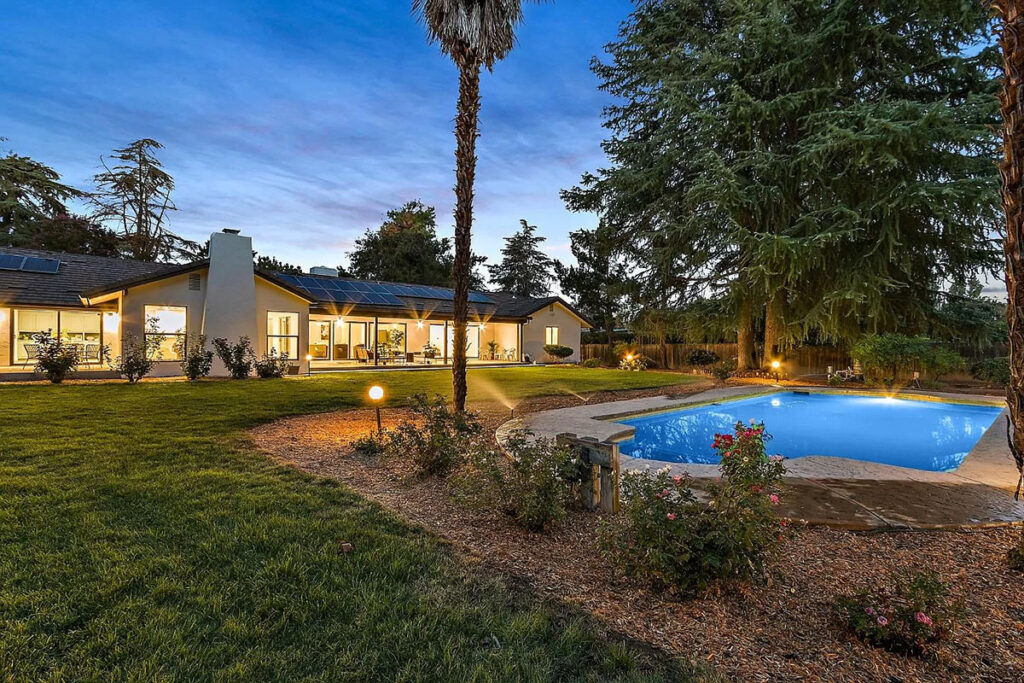Our sober living environment is designed to provide a supportive and structured setting for continued recovery and personal growth post-rehab. Now accepting applications for both men and women.
What is Sober Living?
Sober living is a transitional living arrangement for men and women who have are looking for a supportive community to reinforce their sobriety. Sober living homes offer a structured environment, fostering independence while providing a recovery network and resources essential for ongoing sobriety.
Is Sober Living in Fresno Right for You?
How do you know whether you should go to detox, a treatment program, or a sober living program? The short answer is–call us! We can discuss where you are in your recovery journey and help you choose the right next step for you.
Sober living recognizes the unique challenges and experiences of recovery, and it is designed to lay a strong foundation for lasting recovery.
Sober living homes are great for those who have completed a treatment program but still need a supportive environment as they transition back to daily life. These homes offer structure and accountability, which can be essential in maintaining sobriety. You’ll live with others who are also committed to their recovery, which fosters a sense of community and support.
If you’re worried about returning to your usual environment, where old habits or triggers might resurface, sober living could provide the buffer you need. It’s a chance to practice healthy coping skills and continue your recovery journey in a safe, structured space while still working toward independence.

What to Expect in a Sober Living Home
A sober living home offers a balanced blend of independence and structure. Residents can expect regular meetings, shared household responsibilities, and a supportive network of individuals on the same path. Our homes provide a safe space to practice sober living skills and gradually reintegrate into everyday life.

The Benefits of Fresno, California for Sober Living
Fresno, California, with its tranquil surroundings, is an ideal location for sober living. For local residents, it offers a peaceful environment to continue their recovery journey. For those from other areas, the change in environment can be a crucial factor in breaking old habits and forming new, healthier patterns.
Start Your Path to Sober Living Today
Ready to start your life post-treatment? Join our sober living community, where you’ll find the support and guidance needed to navigate your recovery journey. Our program is designed to empower you with the tools and confidence to maintain your sobriety and pursue the life of your dreams.
Frequently Asked Questions About Sober Living
How Long Do Most People Stay in Sober Living?
The duration of stay in sober living homes varies, but many residents stay for anywhere from three months to over a year. The length of stay often depends on the individual’s needs, their progress in recovery, and their readiness to transition to a more independent living situation.
What Is Another Name for a Sober House?
A sober house is also commonly referred to as a halfway house, recovery residence, or sober living environment (SLE). These terms generally describe a supportive, drug-free living environment for individuals recovering from addiction.
How Does a Sober Living Home Differ from Other Types of Residential Treatment?
Sober living homes differ from other residential treatments in that they typically offer more independence and less structure. Residents are usually required to maintain sobriety, contribute to the household, and may work or attend school, unlike more intensive residential treatment programs that have a structured schedule of therapy and activities.
Who Can Benefit from Living in a Sober Living Home?
Individuals in recovery from substance abuse who need a supportive and structured environment, but who are also ready for more independence than is provided in inpatient treatment programs, can benefit from living in a sober living home. It’s ideal for those transitioning back into everyday life while still requiring support.
Is Sober Living in Fresno Regulated?
Yes, sober living homes are regulated to ensure safety and quality standards. Her Harbor adheres to these regulations, providing a secure and supportive environment.
What Are the Rules and Regulations Typically Enforced in Sober Living Homes?
Rules in sober living homes typically include maintaining sobriety, adhering to a curfew, participating in household chores, attending house meetings, and respecting other residents and staff. These rules are designed to support a safe and supportive environment for everyone.
Is Sober Living in Fresno Expensive?
The cost of sober living varies, but Her Harbor strives to provide affordable options. We can discuss financial arrangements to accommodate your needs.
Can I Work or Attend School While in Sober Living?
Absolutely. Individuals in sober living are encouraged to pursue work, education, or other productive activities, as it’s a key part of reintegrating into daily life and maintaining independence.
Is Sober Living Only for People Coming Out of Rehab?
While many residents come from rehab, sober living is also suitable for those who require a structured environment to support their ongoing sobriety.
Are Visitors Allowed in Sober Living Homes?
Visitors are typically allowed in sober living homes, but there may be specific rules and schedules to ensure the safety and comfort of all residents.
Is There a Curfew in Sober Living Homes in Fresno?
Most sober living homes have a curfew to maintain structure and safety. The specifics can vary and are designed to support the recovery process.
What Support Services are Provided in Sober Living?
Support services in sober living include group therapy, individual counseling, life skills training, and community support, all aimed at fostering a successful transition to an independent, sober life.
Are Residents Required to Participate in Therapy or Counseling?
While requirements can vary, many sober living homes encourage or require residents to participate in therapy, counseling, or support group meetings as part of their recovery process. This requirement helps residents continue to work on underlying issues related to their addiction.
How Are Conflicts or Issues Among Residents Resolved in Sober Living Homes?
Conflicts or issues among residents in sober living homes are usually resolved through mediation facilitated by staff members or through house meetings where issues can be discussed openly and constructively. The goal is to promote a peaceful co-living environment and teach conflict resolution skills.